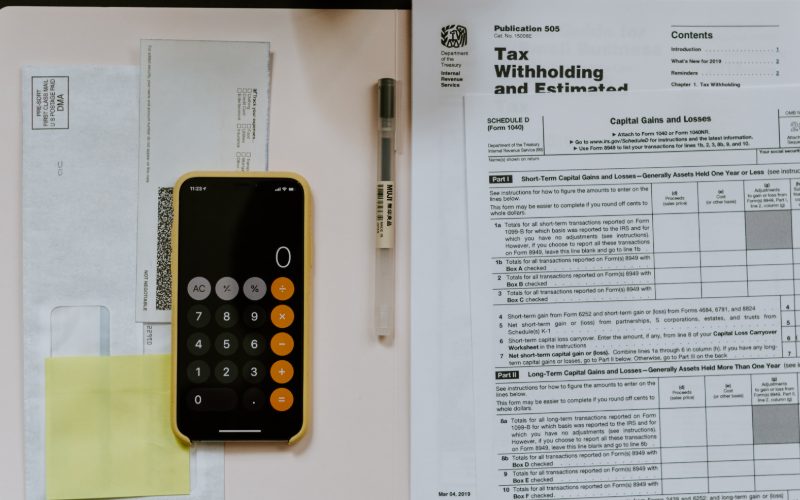Given the rough patch the economy has fallen into amid COVID-19, it’s understandable that many Aussie businesses will be hoping to avoid any extra tax pains this end-of-financial year, and maybe earn some tax relief.
So, if you’re a business owner, how can you best prepare a return in the wake of COVID-19 while not taking the proverbial p…?
Small-medium business tax filing in 2020: What to know
With everything that’s going on, there may be a lot of information to absorb this tax time.
While 2020 has been a difficult year, completing your tax return doesn’t need to be hard, according to the tax office.
ATO Assistant commissioner Karen Float said the ATO has published information on its site to help Australians get their tax returns right this year, such as its ‘Tax Time Essentials’ page and its ATO Community forum.
“If you’ve read through the information on our website and still have a question, search our online forum ‘ATO Community’,” Ms Float said.
“This forum is available 24 hours a day and we have a great community of expert members who respond to questions. In a lot of cases, there’s an ATO-endorsed response to help you. If not, post it yourself and we’ll have a response back to you as quick as we can.”
One thing that’s different this year for many businesses are the JobKeeper payments, which Ms Float says need to be included in the tax returns.
“Sole traders who have received the JobKeeper payment on behalf of their business will need to include the payments as assessable income for the business,” she said.
We talked to a couple of experts in the taxation and accountancy fields, and picked their brains for the things to keep on top of this end-of-financial-year.
Dr Adrian Raftery aka Mr Taxman
Dr Raftery has identified three key areas small business owners will want to take note of come tax time:
Single Touch Reporting (STP) for closely held businesses
“From 1 July 2020, closely held payees — someone who is directly related to the entity (such as family members, directors or shareholders) — will need to start reporting through STP.”
Instant asset write-off
“Previously earmarked to change on 1 July 2020, the $150,000 threshold for the immediate write-off for assets acquired by businesses with aggregated turnover of less than $500 million will now revert back to $1,000 for small businesses with an aggregated turnover of less than $10 million on 1 January 2021.”
Research & development (R & D) tax incentive reduced for small businesses
“In changes proposed in the 2018 Federal Budget, the government plans on reducing the R&D tax incentive reduced from 43.5% refundable tax offset to a premium of 13.5 per cent above the claimant’s company tax rate (that is, 39.5%) for companies with an annual turnover less than $20 million as well as placing a $4 million annual cap on cash refunds.
“At the time of writing, this proposal is not yet law.”
Mr Taxman, Dr Adrian Raftery, is author of ‘101 Ways to Save Money on Your Tax - Legally!’ with the 2020-2021 edition available from Wiley publishers.
Davie Mach, Director of Box Advisory Services
Mr Mach has outlined four key areas that small business owners can keep an eye out for this tax time.
Tip #1: “Claim more tax deductions on your property: If you have commercial or investment properties, get a quantity surveyor to work out a depreciation schedule. Then you’ll have a more accurate idea of how much you can claim every year, and save more on tax.”
Tip #2: “Reduce tax through super contributions: When contributing company earnings to a super fund, the earnings will be taxed at a lower tax rate, effectively reducing the amount of tax you would’ve had to pay by roughly 12.5%.”
Tip #3: “Pre-pay your bills to save on tax such as insurance or rent before 30 June.”
Tip #4: “Despite the ATO announcing a "shortcut" method of 80 cents for each hour you work from home being claimed on WFH expenses, this may not be the best option. Your accountant can help you work out your individual expenses such as phone costs, internet costs, stationery, decline in value and repair of capital items and many more. By individually assessing how much you can claim, you can potentially claim more through this method instead.”
Box Advisory Services is an accounting firm that specialises in servicing SMEs and sole traders.
Small businesses “overburdened” with taxation framework
The Australian Small Business and Family Enterprise Ombudsman Kate Carnell has called for changes to Australia’s taxation framework as small businesses are “unnecessarily overburdened” by compliance requirements.
“There has never been a tougher time to be in business,” she said.
“The last thing small businesses need is the stress of complying with overly complicated processes while trying to balance their cash flow.
“The current system effectively forces small businesses to act as the ATO’s unpaid tax collectors.
“Over recent decades, small business owners have been burdened with the requirement to withhold tax from employees’ wages (PAYGW), the additional superannuation guarantee and the GST.
“This has shifted administration responsibilities from the government to small businesses, which face significant penalties and interest if an honest mistake is made.”
As a result, the Ombudsman has outlined four key areas to make taxation simpler for small businesses:
-
Optional single payment to the ATO to cover PAYG(W) superannuation guarantee and GST
-
Period of review for small business tax returns to be one year following lodgement
-
Abolish Fringe Benefits Tax [FBT] for small business
-
Permanent small business instant asset tax write-off of $150k
Ordinarily the instant asset tax write-off is $30,000 but has been lifted to $150,000 in response to COVID-19, and has been extended through to the end of 2020.
For the FBT, small businesses are required to pay it on items that large businesses provide in-house to retain staff such as meals, gyms and childcares - but larger businesses don’t have to pay FBT.
The Ombudsman also said Australian Tax Office audits can be “incredibly disruptive and distressing” as they are conducted by as much as five years in-arrears and has called for a speed-up of the process.
Disclaimers
Savings.com.au does not provide tax advice. This material has been prepared by Savings.com.au and is for informational purposes only, and is not intended to provide, and should not be relied on for tax advice.
For tax advice relevant to you, visit the ATO or consult an independent tax advisor.

Ready, Set, Buy!
Learn everything you need to know about buying property – from choosing the right property and home loan, to the purchasing process, tips to save money and more!
With bonus Q&A sheet and Crossword!

.jpg)